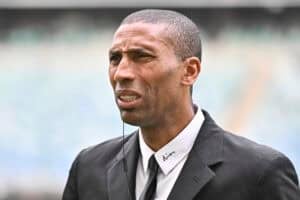Muhammadu Buhari, who is seeking re-election next year, made Nigerian political history as the first opposition candidate to defeat a sitting president at the ballot box.

But since his election just over three years ago, the former military ruler has faced persistent rumours of ill-health, criticism of his handling of the economy and security, and questions over his campaign to root out corruption.
On Monday, the presidency said the 75-year-old leader would seek a second straight term.
“Victory is sure by the grace of God and together we must continue to sanitise Nigeria’s political environment,” he said.
During the 2015 election campaign, the People’s Democratic Party (PDP) of his opponent Goodluck Jonathan claimed the rapier-thin Buhari was “mortally ill” from prostate cancer.
Buhari and his All Progressives Congress (APC) party dismissed the assertion as another smear intended to portray him as unfit for office.
But health concerns have been persistent throughout his tenure. In June 2016, Buhari flew to London for treatment of what aides called a persistent inner ear infection, and returned there to see doctors in early 2017. Aides had to counter persistent rumours that he was seriously ill — and even dead.
– Anti-corruption zeal –
Another problem facing Buhari has been the economy. Nigeria slipped into recession in 2016 with sky-high inflation, which has been steadily coming down.
Buhari, seen here in Paris in December 2017 alongside French President Emmanuel Macron, has appeared frail but resumed his public engagements
On the security front, Buhari declared in December 2015 that Boko Haram’s jihadists — who once tried to blow him up — were “technically” defeated.
But the group still stages deadly attacks on both military targets and civilians, and the insurgency has spilled over into neighbouring countries.
Pro-Biafra groups wanting secession in the southeast are resurgent and deadly clashes have resumed between herdsmen and farmers in central states.
On corruption, there have been several headline-making arrests but no high-profile convictions, and it is unclear whether Buhari’s zeal for transparency and accountability extends to the wider political establishment.
– ‘Converted democrat’ –
Buhari’s 2015 election win — after three failed attempts in a country where victory for the incumbent had been taken for granted — was a rare opportunity for Nigeria to change course.
His pledge to give his “strength, commitment, sweat and toil in the service of the people” raised hopes for an end to decades of rampant cronyism, corruption and impunity.
Unusually for a Nigerian leader, Buhari did not accumulate much wealth during the 20 months he ran the country after seizing power in a military coup in 1983.
But the self-styled “converted democrat” — he dropped the title “general” to quell fears of a repeat of his autocratic military rule — repeatedly warned voters against unrealistic expectations.
He announced he was taking a 50-percent pay cut, published his finances and tried to introduce greater openness and efficiency to the murky world of Nigerian government.
A devout Muslim from Daura in the northern state of Katsina, Buhari was once described by a military colleague as “exceptionally corruption-free”, and he did little to contradict his ascetic image.
In September 2015 when he declared his assets, his spokesman said he had been living an “austere and spartan lifestyle” compared with those of former heads of state and senior government ministers.
– ‘Fantastically corrupt’ –
Buhari’s pursuit of the corrupt and his pledge to recover “mind-boggling” sums of looted public funds earned him plaudits and, inevitably, critics.
The PDP accused him of leading a political witch-hunt, as most of those brought to trial were opposition figures.
His leadership style was attacked for concentrating power within a small group of trusted advisors. Little was said to pass without his personal approval.
In March, Buhari posed with schoolgirls who had been kidnapped by Boko Haram and then released. The insurgency in northern Nigeria is continuing, despite Buhari's claim to have rolled the jihadists back
Policy implementation was lengthy, and the six months it took him to appoint ministers earned him the nickname “Baba Go Slow”.
But many were satisfied that he was at least trying to tackle corruption, even if it at times he appeared to struggle with consensual politics.
Buhari is at times disarmingly forthright.
In May 2016 a reporter in London asked whether he agreed with unguarded comments from David Cameron, Britain’s prime minister at the time, describing Nigeria as “fantastically corrupt”.
“Yes, it is,” he replied.
Buhari was divorced from his first wife, Safinatu, with whom he had five children. He married his second wife, Aisha, in 1989 and had another five children with her.






